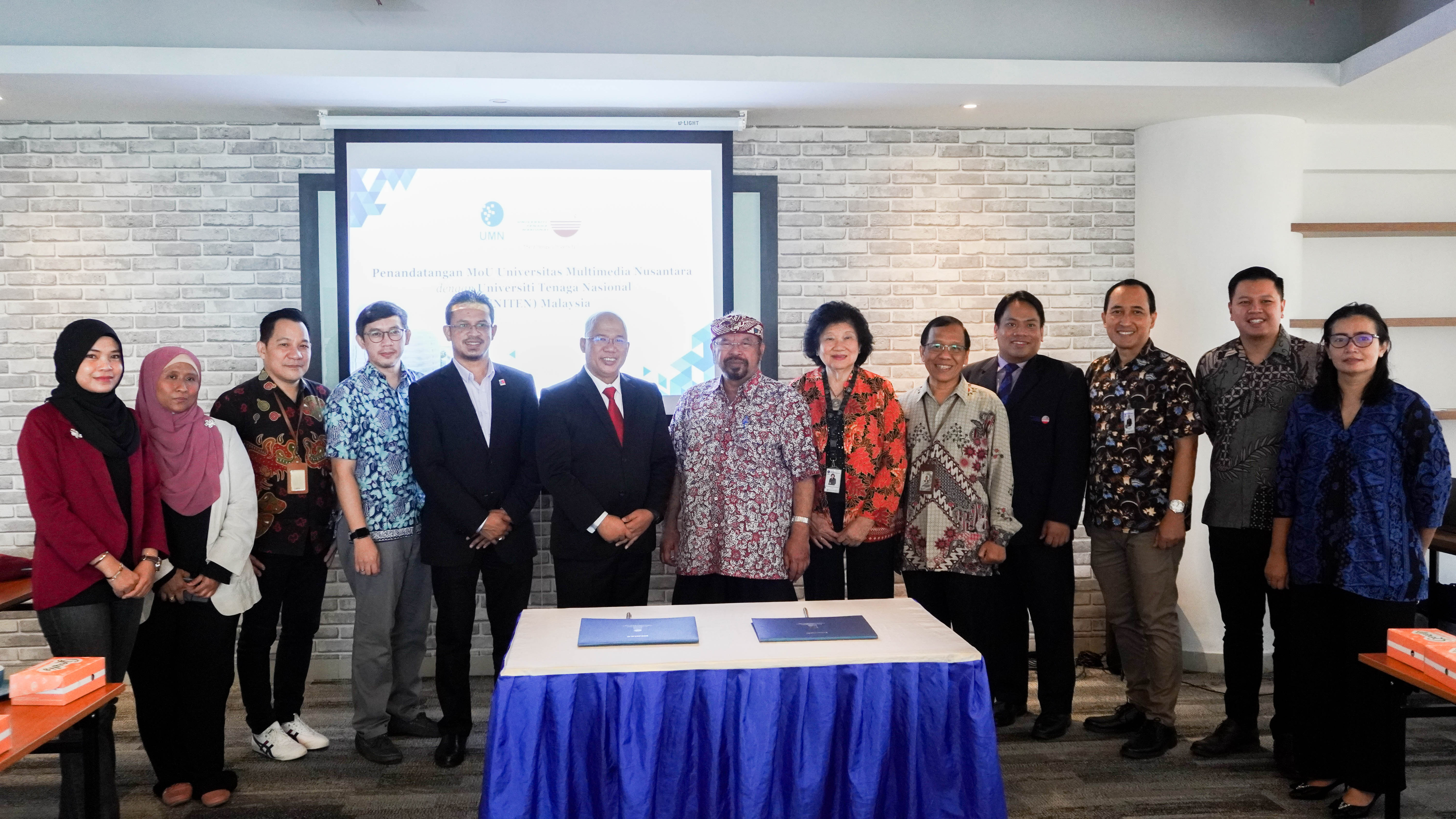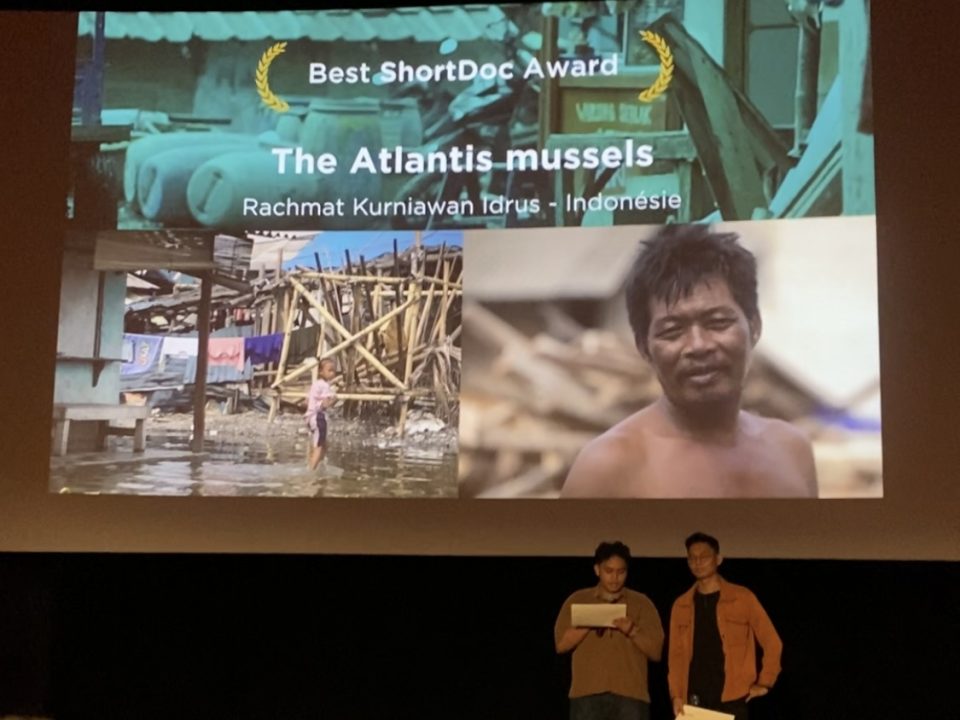
Not Just a Manager, Here’s 8 Job Opportunities for Management Graduates
November 28, 2022
Multimedia Nusantara University Signs a MoU with UNITEN
December 5, 2022
Photo by MART Production From Pexels
Getting a scholarship and having the opportunity to continue their studies feels like a dream for some students. Moreover, by getting a scholarship, the cost of education will be fully borne by the scholarship provider. In addition to scholarships for high school students who are looking to get their bachelor’s degree, scholarships are also available for undergraduate students who will continue their education at the master’s or doctoral level both domestically and abroad.
Usually, the scholarship organizers will provide registration information along with the selection stages, which are informed through a selection guide or booklet provided by the scholarship provider agency. Scholarship providers have also built partnerships with various universities as places of study for awardee candidates when they are accepted later.
When you want to apply for a scholarship program to continue your studies, there are several things you need to prepare, fellow friends. Starting from administrative files, destination universities, study plans written in the form of essays, supporting documents, and others. Of course, getting a scholarship is a challenging process. There are many steps that you have to go through when you register for a scholarship program. One of the stages that are the most thrilling for scholarship fighters is the scholarship interview stage.
This stage is not a stage to play. During the scholarship interview stage, the awardee candidate must be able to steal the heart of the interviewer, an academic, and a psychologist who will explore the interest and seriousness of the scholarship recipient candidate. From here, it is hoped that scholarship fighters will prepare themselves by anticipating various questions that often arise in scholarship interviews.
Want to know the possible questions asked during a scholarship interview? Check out the following explanation!
1. Introduce Yourself
We will immediately discuss the scholarship interview questions starting with the first question: self-introduction. This question is often packaged in various versions. Everyone has a different way of asking this question. But in essence, the interviewer will ask you to do a complete self-introduction. So, self-introduction here is more than just mentioning your name, birthplace, and purpose.
Here you should be able to explain in more detail about who you are, what kind of person you are, what achievements you have achieved so far, and so on. Whatever the question’s form, when it has something to do with yourself, you must use this question to sell yourself to the interviewer. Convey positive things and build a good initial impression through this question—especially things related to your perks. Remember to say your gratitude before answering the question.
“In advance, thank you for the time and opportunity that you have given me. Let me introduce myself. My name is Ayunia Kusumaniar. I am highly interested in the field of research, especially in environmental science studies. I have participated in several research projects and was directly involved with the lecturers to work on them together to produce scientific articles that were successfully published together, which earned ISSN and the title of a nationally reputable journal. Therefore, on this auspicious occasion, I am very pleased to be able to meet you here at the interview session.”
Also read: Want a Discount on Your Undergraduate Tuition Fees? Let’s look at the UMN Scholarship Program.
2. Can You Tell Me Why You Chose This Scholarship?
On this question, the examiner or interviewer will ask about your reasons for applying for the scholarship. Here, the interviewer wants to know how deep the candidate’s knowledge is regarding the scholarship they are participating in.
Prospective scholarship recipients can estimate the benefits or advantages they will receive later if they receive this scholarship. In answering this question, provide rational, logical, and reasonable reasons. Avoid answers that seem far-fetched, exaggerated, or not even per the current phenomenon.
“I chose this scholarship because the scholarship organizers have covered all educational costs like the tuition fees paid every semester, research costs, and others. Thus have become the focus of attention to create a young generation who are intellectual and can contribute according to the scientific fields chosen by prospective scholarship recipients. I will not regret choosing this scholarship because it aligns with the organizer’s goal of creating future leaders.”
3. What Are Your Strong Points and Weak Points?
The next question is about the strong and weak points of the scholarship recipient candidates. This question is similar to the question in the first point, where the question may be asked differently. Everyone has a different way of asking this question.
The essence of the question is that the interviewer wants to know your weaknesses and strengths. The only one who knows the answer to this question is yourself. Here you should be able to explain using examples or case studies over the past few years. This is done in hopes that the interviewer can understand your explanation.
“I am someone who always does their tasks neatly and organized. Working in the research field requires me always to be someone who is used to pressure—starting from the pressure of time, workload, and time to finish the proposals per the estimated time that has been determined to submit the proposals. But I have a weakness which is perfectionism. If I get an assignment, it takes more time because I aim to produce the maximum output.”
4. Why Did You Choose This Major?
When applying for a scholarship, you must also prepare strong reasons and considerations for your chosen major. For example, if you applied for a postgraduate program, is your chosen major compatible with your previous major? Or maybe the major took a turn and is completely unrelated? If yes, why?
Here you must explain the argument that you are indeed interested in choosing this major. For example, the courses offered, suitability between courses, study plans/research plans, department accreditation, availability of learning facilities, and many other factors that may answer this question. State the reasons clearly to the interviewer.
“I chose the Department of Environmental Science because I was concerned about cases related to the environment. For example, waste disposal that threatens aquatic biota, deforestation, and others. Here, I feel that my passion for the environmental field, especially in conducting studies regarding the environment, is very much in line with the major I took for my further studies. According to the information I got from the campus regarding the environmental science study program, it has received A accreditation, and the courses offered are also varied.”
5. Tell Us About The Biggest Challenge You’ve Ever Faced
We enter into a question that is a little challenging and is often considered difficult to solve. Here the interviewer tries to dig up a bit of the personal life of the prospective scholarship recipients by asking them to reflect on their lives and ask, “have you ever faced the biggest challenge in your life?” Why? Because facing hardships helps people to learn valuable life lessons.
“During my research, I received an offer from a supervisor to research water quality related to regional economic growth. This is a challenge and a new thing for me because I am not used to researching this topic. As a result, I started to study this topic, which was also involved in the lecturer’s research umbrella. Moreover, the theory used is new and adapted from an international journal, so I need time to understand it. This challenge taught me to get out of my comfort zone where I am used to discussing environmental conservation.”
6. Can You Tell Me a Little About Your Research Plan
When prospective candidates want to apply for scholarships to continue their studies to the master’s or doctoral level, interviewers often ask whether the prospective scholarship recipients have any idea about the research plans they want to study ahead of the thesis/dissertation.
Here the interviewer only wants to know how far the prospective student is prepared, one of which is the research plan which will be examined per the scientific field to be taken. The interviewer also wants to see the compatibility between the study plan and the offered courses written in the essay. Make sure your answer is logical and rational, following the current conditions. If necessary, it may also be supported with data and facts so that the interviewer can clearly understand your research plan.
“I plan to study the relationship between water quality and regional economic growth. I want to test whether or not there is a relationship between water quality and economic growth, such as village funds and building permits. The reason is that I want to combine the theory I got in environmental science studies. Furthermore, I will also take courses per my future research plans.”
7. Any Questions For Us?
In scholarship interview sessions, usually, the interviewer will give the final question before the interviewer ends the session. This question also allows prospective candidates to ask questions regarding dark matters regarding the guidelines for receiving scholarships. In this question, you are also given space to talk because scholarship interviews are a two-way communication between the interviewer and the potential candidate.
Even if you feel like you don’t have any questions, it’s best to ask. If you don’t, the interviewer will assume you are unenthusiastic simply because you don’t have any questions.
You can ask questions such as the scheme for the next selection stage after the interview, the criteria for prospective scholarship recipients as desired by the organizers, and so on. At least ask some questions before leaving the interview. This shows that you are a candidate who is ready and full of curiosity.
Also read: Dedicated to the Nation, UMN Provides Full Undergraduate Scholarships Until Graduation.
So, those are the questions that usually come up in scholarship interviews. Sometimes, the scholarship organizing committee updates its regulations and questions to give to scholarship recipient candidates during interviews. Hence, ensure you are ready for any additional questions.
In this article, we only provide a few examples and references. You can answer these questions according to your personal conditions and experience!
So, are you ready for the scholarship interview yet? Multimedia Nusantara University (UMN) is a private campus in Tangerang that offers various scholarship pathways for prospective students from various backgrounds. Scholarships offered by UMN are also available for all undergraduate majors at UMN.
What are you waiting for? Let’s join UMN!
English translation by Levina Chrestella Theodora
Kuliah di Jakarta untuk jurusan program studi Informatika | Sistem Informasi | Teknik Komputer | Teknik Elektro | Teknik Fisika | Akuntansi | Manajemen| Komunikasi Strategis | Jurnalistik | Desain Komunikasi Visual | Film dan Animasi | Arsitektur | D3 Perhotelan , di Universitas Multimedia Nusantara. www.umn.ac.id





